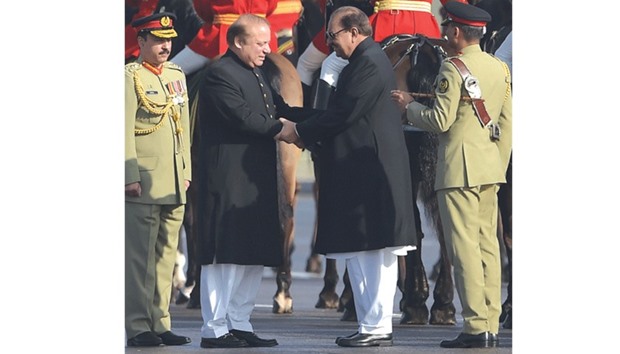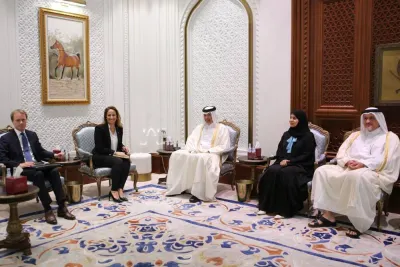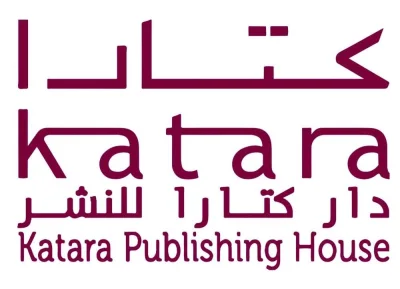Pakistani President Mamnoon Hussain yesterday offered a dialogue with India to peacefully resolve the Kashmir dispute.
Addressing a military parade here on a the occasion of Pakistan Day, Hussain slammed India for what he said were its “irresponsible actions and violation of the ceasefire” which he claimed posed threats to Pakistan’s security.
“We are ready for a dialogue with India to find out a solution to the Kashmir dispute in accordance with the UN resolutions,” he said.
He reiterated that Pakistan will continue moral, political and diplomatic support to the people of Jammu and Kashmir for their right to self-determination.
The president also urged the international community to play its role for a peaceful resolution of the Kashmir dispute.
Pakistan, he said, had no “aggressive designs” against any country but maintained minimum deterrence for regional peace and stability.
Pakistan had been fighting the war on terror for years and that the armed forces and other law enforcement had made huge sacrifices.
“Pakistan is now much secure than the past because of the unprecedented sacrifices of our armed forces and the people.”
The nation commenced celebrations for the 77th Pakistan Day with a pledge to make the country stronger by wiping out the menace of terrorism, achieving sustainable economic growth and political stability.
The day marks the historic Lahore Resolution of 1940, when the All-India Muslim League demanded a separate homeland for the Muslims of the subcontinent.
Chinese, Saudi and Turkish troops for the first time joined the Pakistan Day parade, in a sign of deepening ties.
Before Pakistan showed off long-range rockets, tanks and other military hardware, armed Chinese troops marched past Prime Minister Nawaz Sharif and General Qamar Javed Bajwa, the chief of Pakistan’s powerful military.
The president said it was the first time Chinese troops participated in a parade in a foreign country, terming it a “historic event”, with the two countries embarking on building vast infrastructure together.
Soldiers from Saudi Arabia, a long-time Pakistan ally, also joined the parade, as did a military band from Turkey, that has strengthened ties with nuclear-armed Pakistan in recent years.
Islamabad considers China an “all-weather friend” and in recent years the countries have grown even closer on the back of the $57bn China-Pakistan Economic Corridor (CPEC), a Beijing-funded network of road, rail and pipelines that will link western China with Pakistan’s Arabian Sea port of Gwadar.
The militaries of the two countries have in recent years also increased co-operation, with Chinese officials urging Pakistan to do more to improve security to help CPEC work.
China has long pressed Pakistan to do more to rein in Islamist militants, saying they have connections with extremists and separatists in China’s unruly far western region of Xinjiang.
During the parade radars systems and other weapons equipped with military technology were also displayed.
The NASR missile, which has a 60km range; the Shaheen missile with a range of 900km; the Ghauri missile system, which can hit targets of up to 1,300km in range; and the Babur cruise missile were also rolled out in the parade.
With a highly precise guidance system and the capability to reach targets 2,750km away, the Shaheen-III missile was also showcased during the event.
A cultural parade featuring people and floats from Pakistan’s four provinces of Sindh, Punjab, Balochistan, Khyber Pakhtunkhwa and Gilgit Baltistan and Azad Kashmir was presented during the ceremony.
The parade showcased the local cultures of the four provinces, while models of historical regional landmarks were presented on the floats.

Prime Minister Nawaz Sharif shakes hands with President Mamnoon Hussain during the parade.


